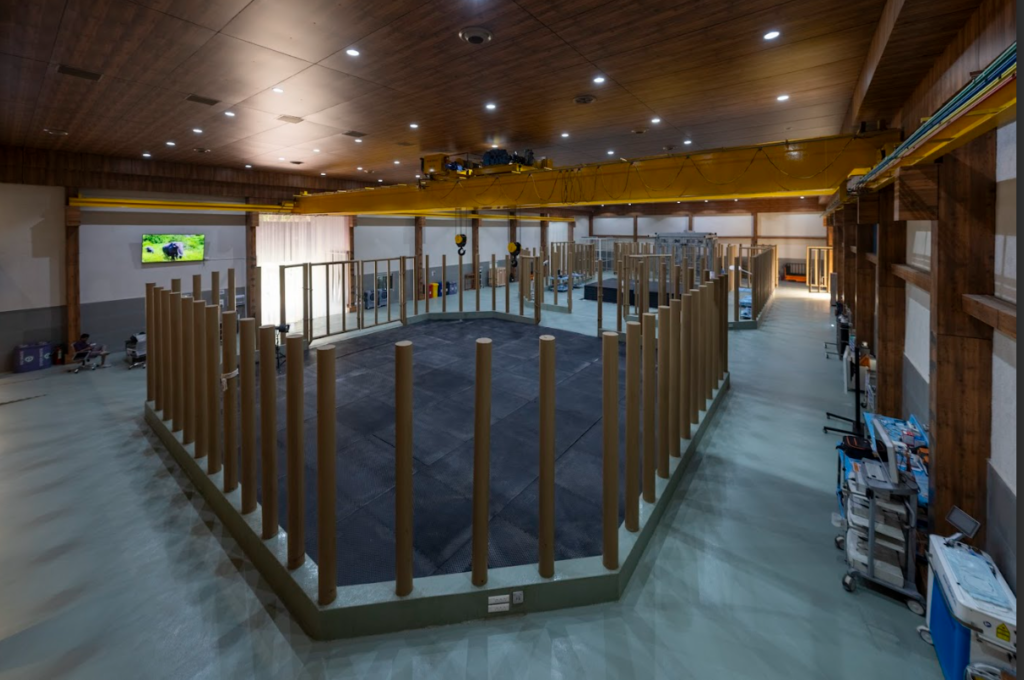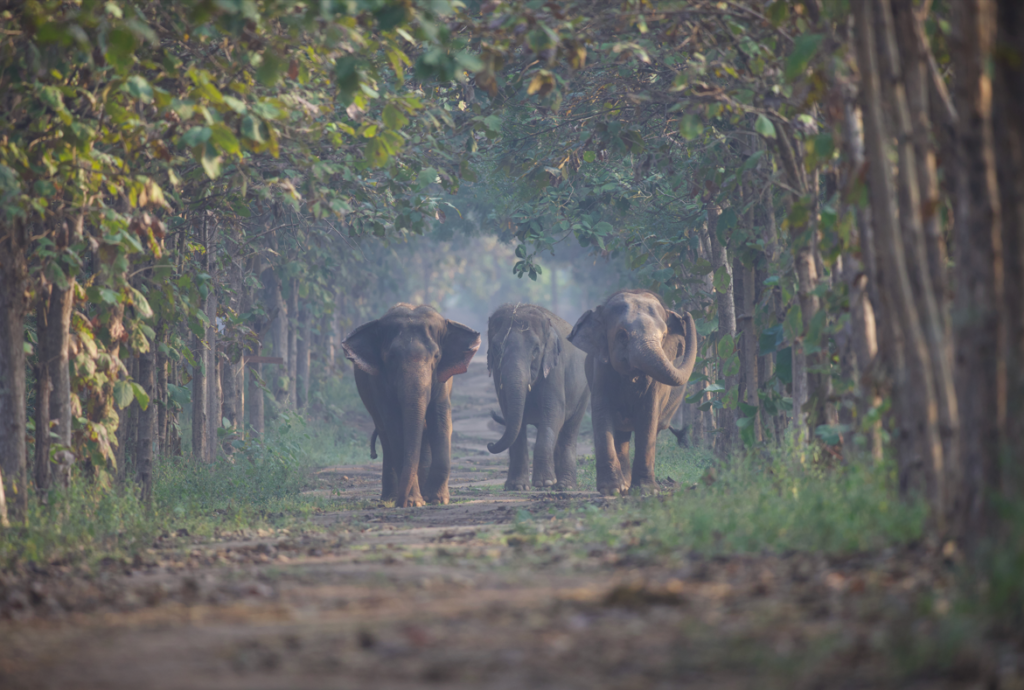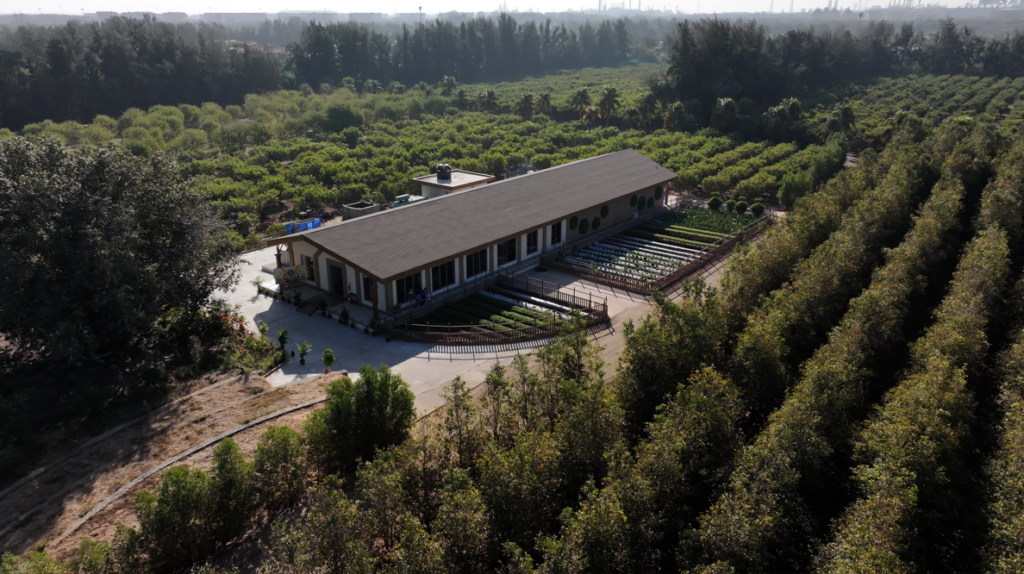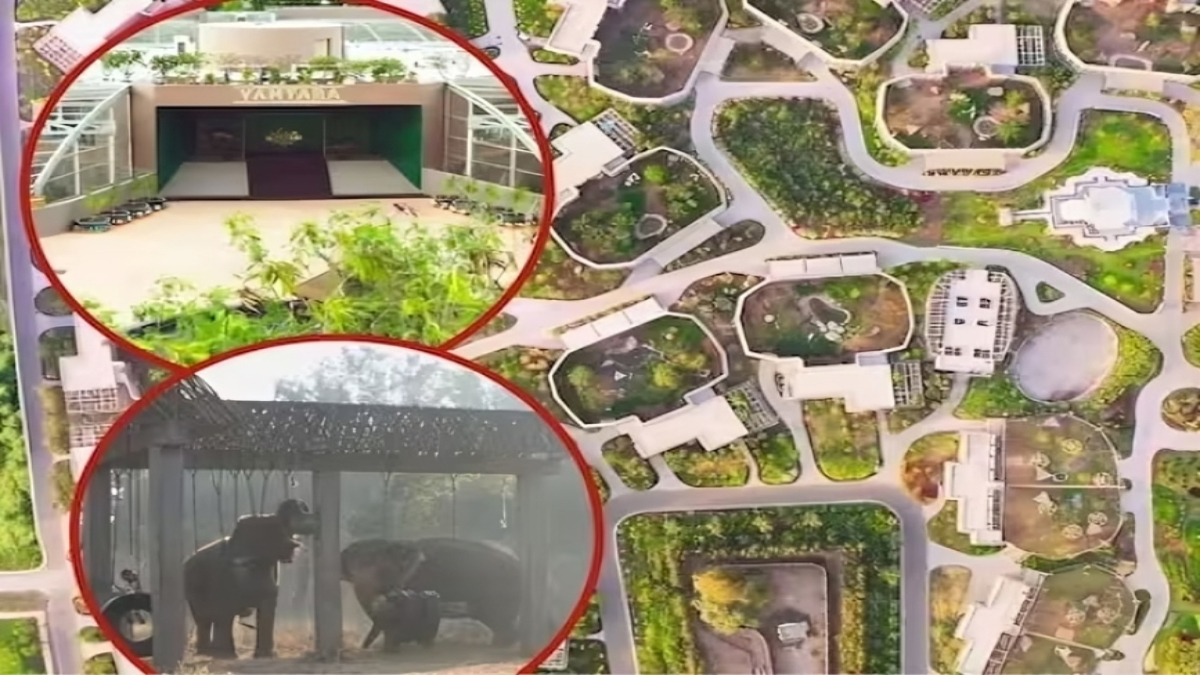Reliance Industries and Reliance Foundation have introduced the Vantara (Star of the Forest) program in Jamnagar. Vantara is a comprehensive initiative dedicated to the rescue, treatment, care, and rehabilitation of injured and endangered animals in India and beyond. Situated across 3000 acres within the green surroundings of Reliance’s Jamnagar Refinery Complex in Gujarat, Vantara aims to play a significant role in global conservation efforts. Collaborating with renowned animal care and welfare experts, Vantara has transformed the expansive 3000-acre area into a forest-like habitat, providing a natural and thriving environment for rescued animal species.
Led by Anant Ambani, Director of the Board of Directors of RIL and Reliance Foundation, Vantara is a pioneering initiative in India. Anant Ambani, who also oversees Reliance’s renewable energy business in Jamnagar, shoulders the responsibility of steering Reliance towards achieving net carbon zero status by 2035. Vantara boasts top-notch animal conservation and care practices, equipped with advanced healthcare facilities, hospitals, research centers, and educational institutions. The program also emphasizes on advanced research and partnerships with esteemed international universities and organizations like the International Union for Conservation of Nature (IUCN) and the World Wildlife Fund for Nature (WWF). In recent years, Vantara has successfully rescued over 200 elephants, along with numerous other animals, reptiles, and birds from hazardous conditions. Furthermore, the program has taken proactive steps towards rehabilitating rhinoceroses, leopards, and crocodiles.

Vanatara has recently taken part in foreign rescue operations in nations such as Mexico and Venezuela. Numerous large animals have been relocated here following a request from Central American zoo authorities. All rescue and rehabilitation missions are carried out in accordance with stringent legal and regulatory frameworks both in India and internationally.
Speaking at the event, Anant Ambani expressed, “What began as a personal passion for me at a young age has evolved into a mission through Vanatara and our exceptional team. Our primary focus is on safeguarding India’s critically endangered species. We aim to restore vital habitats, address immediate threats to species, and position Vanatara as a prominent conservation program. We are pleased that our endeavors have garnered recognition both in India and globally. Prominent zoological and medical experts from India and around the world have joined our cause, and we are fortunate to have the active support and guidance of governmental bodies, research institutions, and educational establishments. Vanatara intends to collaborate with the Zoo Authority of India and other relevant government entities to enhance training, capacity building, and animal care infrastructure in all of India’s 150-plus zoos. “We aspire for Vanatara to serve as a beacon of hope worldwide and demonstrate how a forward-thinking institution can contribute to global biodiversity conservation.”

Elaborating on the philosophy that drove him to establish Vanatara, Anant Ambani explains, “Vanatara embodies the timeless ethical principle of compassion combined with the cutting-edge excellence of modern scientific and technological expertise. I view animal care as a service to both God and humanity. Vanatara features a dedicated center for elephants and facilities for lions, tigers, crocodiles, leopards, and various other large and small species.
Features of the Elephant Center
The Elephant Center at Vantara spans across a vast 3000-acre campus, featuring cutting-edge shelters, meticulously designed enclosures for both day and night, hydrotherapy pools, water bodies, and treatment facilities specifically tailored for elephants with arthritis. Notably, there is a spacious elephant Jacuzzi dedicated to their treatment. This remarkable sanctuary is home to a remarkable population of over 200 elephants, who receive unwavering care from a highly skilled and dedicated team of more than 500 individuals. This team comprises veterinarians, biologists, pathologists, nutritionists, and naturalists, ensuring the elephants’ well-being is attended to around the clock.

Within the premises, the center proudly houses the Hathi Hospital, an expansive medical facility spanning 25,000 square feet. This hospital stands as one of the largest in the world and is equipped with state-of-the-art resources, including portable X-ray machines, laser devices for diverse treatments, a comprehensive pharmacy, a pathology lab for all necessary tests, and top-of-the-line elephant deterrent equipment imported from abroad. To facilitate treatment, the hospital is furnished with hydraulic pulleys, cranes, hydraulic surgical tables, and even a hyperbaric oxygen chamber exclusively designed for elephants. The hospital’s capabilities extend to performing cataract and endoscopic guided surgeries, utilizing specially designed endoscopy equipment that is the first of its kind. Rest assured, the hospital is fully equipped to undertake any necessary surgical procedures.
Furthermore, the center boasts a specialized kitchen spanning over 14,000 square feet. This kitchen is dedicated to meticulously crafting a tailored diet for each elephant, taking into account their unique physical needs, including oral health. Additionally, the center incorporates Ayurvedic techniques to provide holistic care for the elephants, ranging from invigorating hot oil massages to the application of multani mitti. Ayurvedic doctors are also available round the clock, ensuring the elephants receive continuous care and attention.
Rescue and Rehabilitation Center
The rescue and rehabilitation center, spanning over 650 acres within a 3000-acre campus, provides sanctuary for wild animals from India and around the world that are endangered or threatened. This expansive enclosure and shelter is home to a variety of rescued animals, including leopards, crocodiles, and other distressed creatures from different regions.
With a dedicated team of over 2100 staff members, the center has successfully rescued and treated numerous animals, such as leopards injured in road accidents, crocodiles from overcrowded facilities, and endangered species from various parts of the world. The facility also boasts a state-of-the-art hospital and research center spanning 1 lakh square feet, equipped with cutting-edge technology for medical treatment and research purposes.
Currently, the rescue and rehabilitation center cares for more than 2000 animals from 43 different species. Conservation breeding programs have been initiated for 7 endangered species, aiming to restore their populations in their natural habitats and prevent their extinction. Thanks to the efforts of the Vantara Ecosystem, hundreds of elephants, large carnivores, herbivores, and reptiles have been given a new lease on life.
Compliance in rescue and exchange
All rescued animals have been transferred to Vanatara following approval from the Chief Wildlife Warden of the respective states and the Central Zoo Authority in accordance with the Wildlife Protection Act, 1972 and Zoo Rules, 2009. All animal exchange initiatives are conducted with the consent of the Central Zoo Authority. Vanatara has also accommodated exchange requests from various institutions in India and overseas. These animals were relocated after obtaining required authorizations from the Central Zoo Authority, Ministry of Environment, Forest and Climate Change, Directorate General of Foreign Trade, Department of Animal Husbandry and Dairying, and Wildlife Crime Control Bureau.
Version 1: All rescued animals have been relocated to Vanatara after receiving approval from the Chief Wildlife Warden of the respective states and the Central Zoo Authority as per the regulations outlined in the Wildlife Protection Act, 1972 and Zoo Rules, 2009. All animal exchange programs are executed with the endorsement of the Central Zoo Authority. Vanatara has also accommodated exchange requests from other institutions in India and abroad. These animals were transferred after obtaining necessary permissions from the Central Zoo Authority, Ministry of Environment, Forest and Climate Change, Directorate General of Foreign Trade, Department of Animal Husbandry and Dairying, and Wildlife Crime Control Bureau.
The Vantara program has experienced significant advantages through collaborations at both the national and international levels.
It collaborates with international entities such as the Venezuelan National Foundation of Zoos, as well as prestigious organizations worldwide like the Smithsonian and the World Association of Zoos and Aquariums. In India, partnerships are formed with the National Zoological Park, Assam State Zoo, Nagaland Zoological Park, Sardar Patel Zoological Park, and others.
Education and Awareness
The Vantara initiative aims to increase awareness about conservation issues, particularly among young people and children, through strong partnerships with educational institutions that involve sharing knowledge and resources. Additionally, it plans to establish a demonstration area featuring animals in state-of-the-art, climate-controlled enclosures, which will set a new benchmark for compassion and animal care.
Green Area
The Vantara program firmly advocates for the integration of animal rescue and conservation efforts, emphasizing the importance of greening the Reliance Refinery areas. To date, thousands of acres of land have been successfully greened as part of this initiative.

